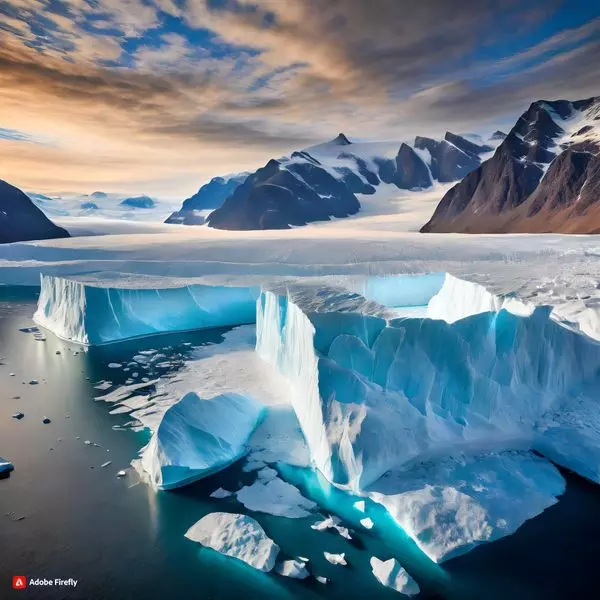A recent study published in the prestigious journal ‘Nature’ has shed light on the vulnerability of the Greenland ice sheet to changes in global temperatures. Conducted by a team of researchers led by UiT The Arctic University of Norway, the study emphasizes the critical temperature thresholds and their impact on the ice sheet and subsequent sea level rise.
According to the study, if the global average temperature remains within the range of 1.7 to 2.3 degrees Celsius above pre-industrial levels, the Greenland ice sheet could face abrupt losses. However, the research suggests that subsequent cooling to below 1.5 degrees Celsius could potentially mitigate ice loss, but only if this cooling occurs within a few centuries.
Using comprehensive modelling studies, the researchers simulated various temperature scenarios, including a peak of up to 6.5 degrees Celsius above pre-industrial levels by 2100. Remarkably, the study indicates that even with such an ‘overshoot’, subsequent cooling within a few centuries could prevent a complete collapse of the ice sheet and consequent global sea level rise.
Lead author Nils Bochow stressed, “Our results underline the importance of swift action, even if we temporarily exceed critical temperature thresholds. The ice sheet’s slow response to human-made warming suggests that cutting greenhouse gas emissions within centuries could prevent irreversible damage.”
Co-author Niklas Boers from the Potsdam Institute for Climate Impact Research and the Technical University of Munich, Germany, echoed these sentiments, warning that even temporary overshooting of temperature thresholds could lead to a significant peak in sea level rise, particularly if temperatures continue to rise.
The study serves as a stark reminder of the urgency to act swiftly, given that the melting of the Greenland ice sheet has already contributed more than 20 percent to observed sea-level rise since 2002.
It also reiterates the goals of the Paris Agreement, emphasizing the need to contain global temperature rise this century to well below 2 degrees Celsius to curb the devastating impacts of climate change.
The authors concluded by emphasizing that the slow response of the ice sheet should not dampen efforts to combat climate change, urging swift and decisive action to preserve the delicate balance of our planet’s ecosystems.
Also Read: Celebrating Cinematic Brilliance: The Prestigious Dadasaheb Phalke Award & Its Timeless Legacy











